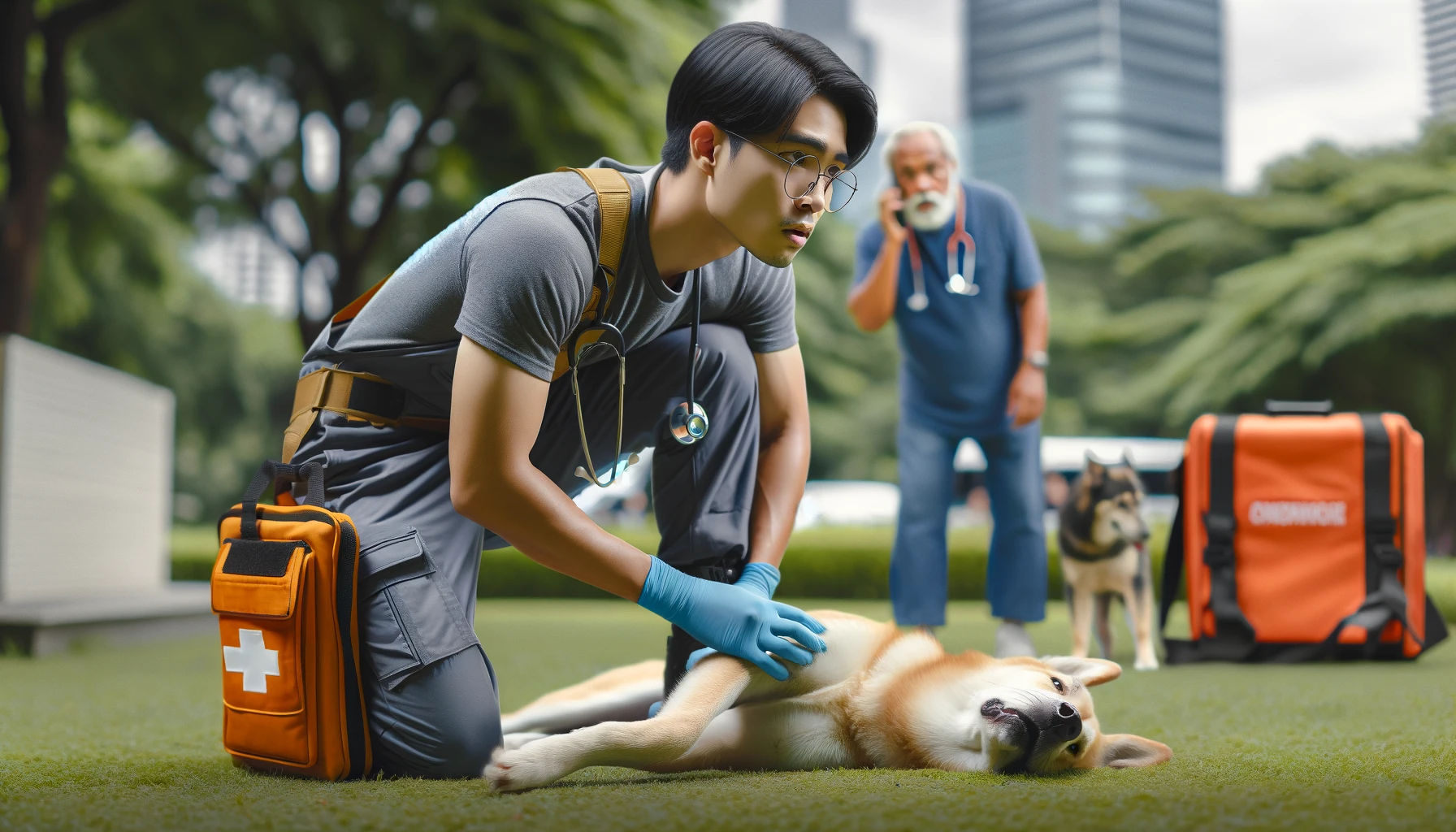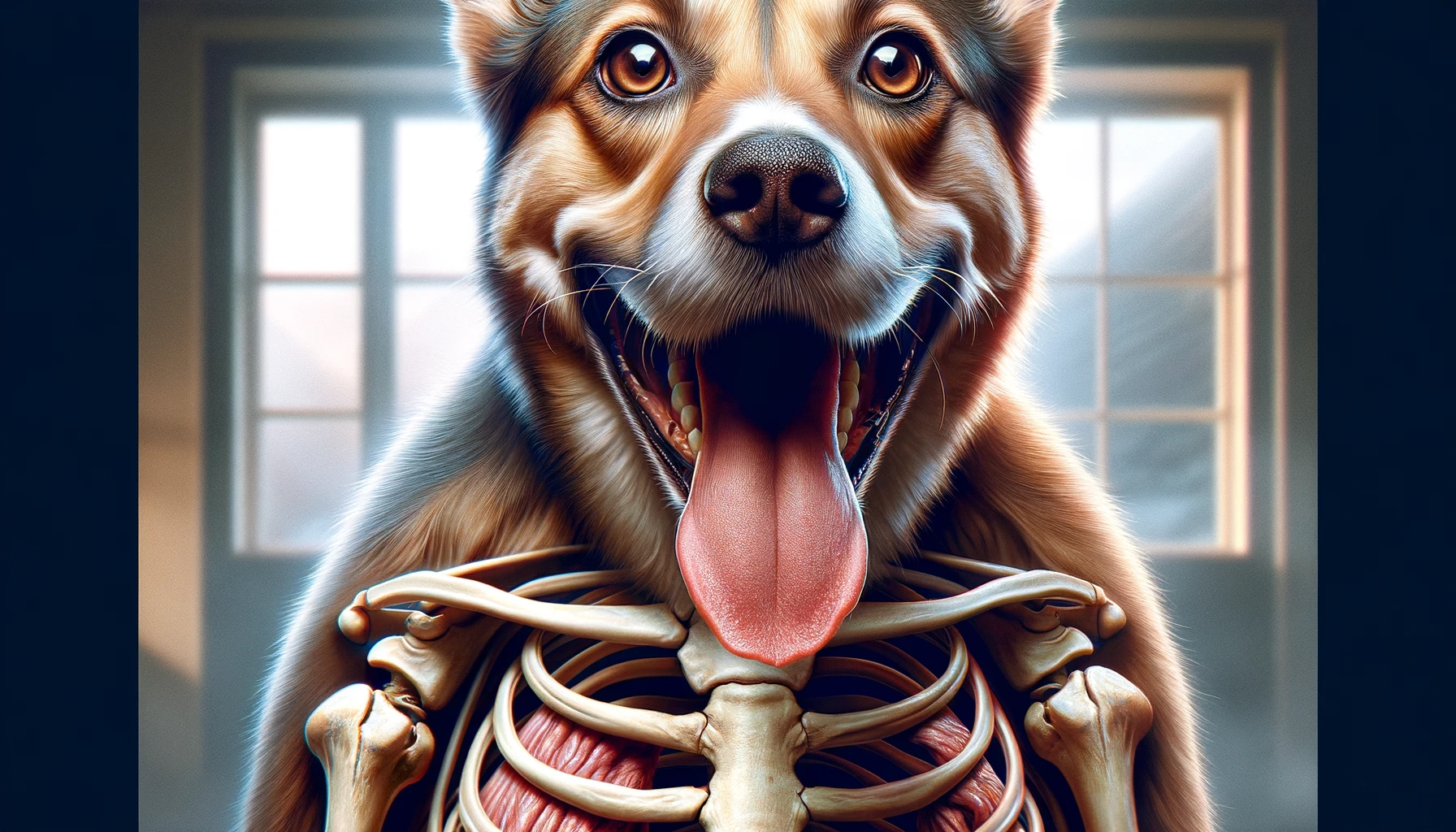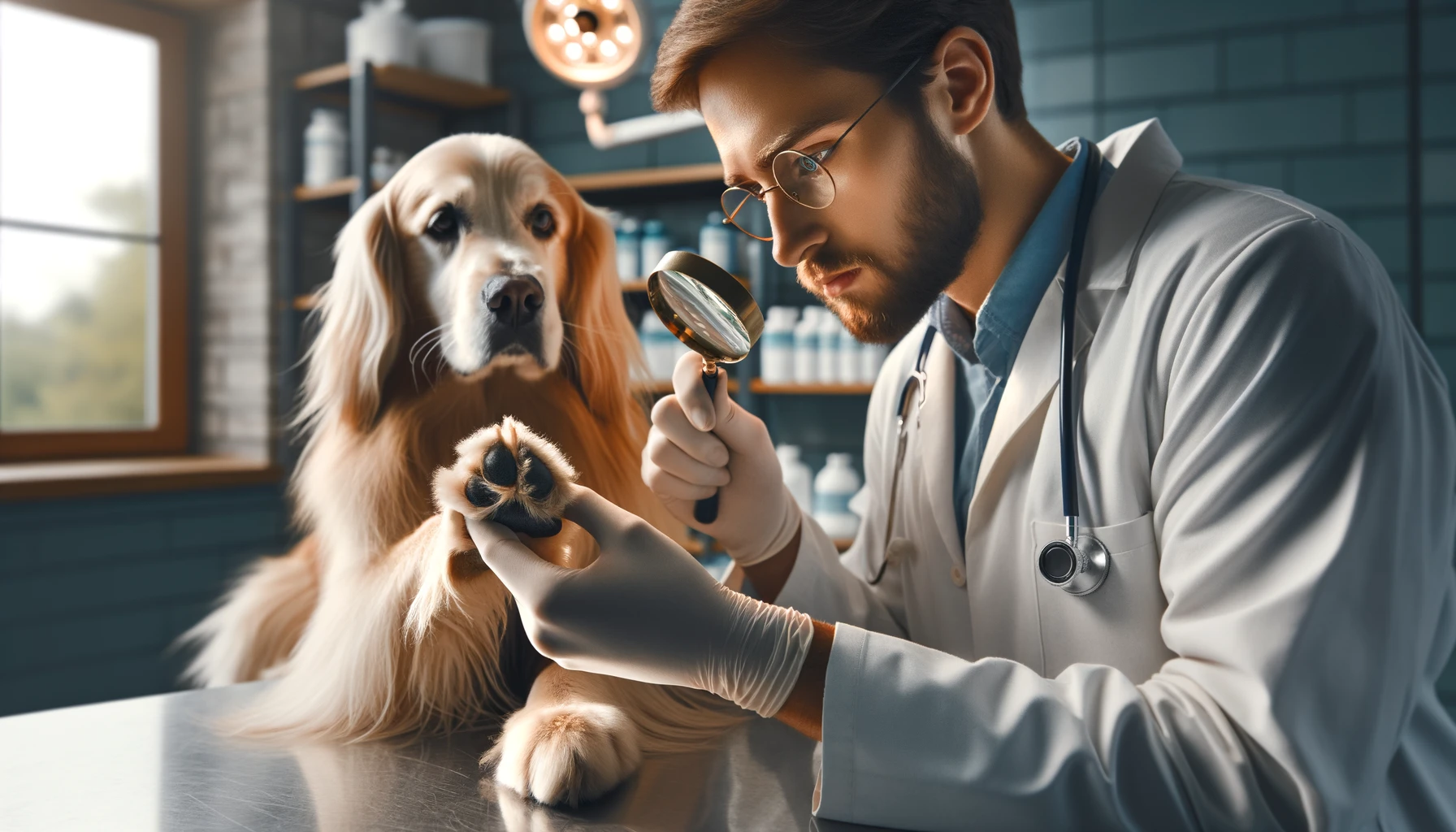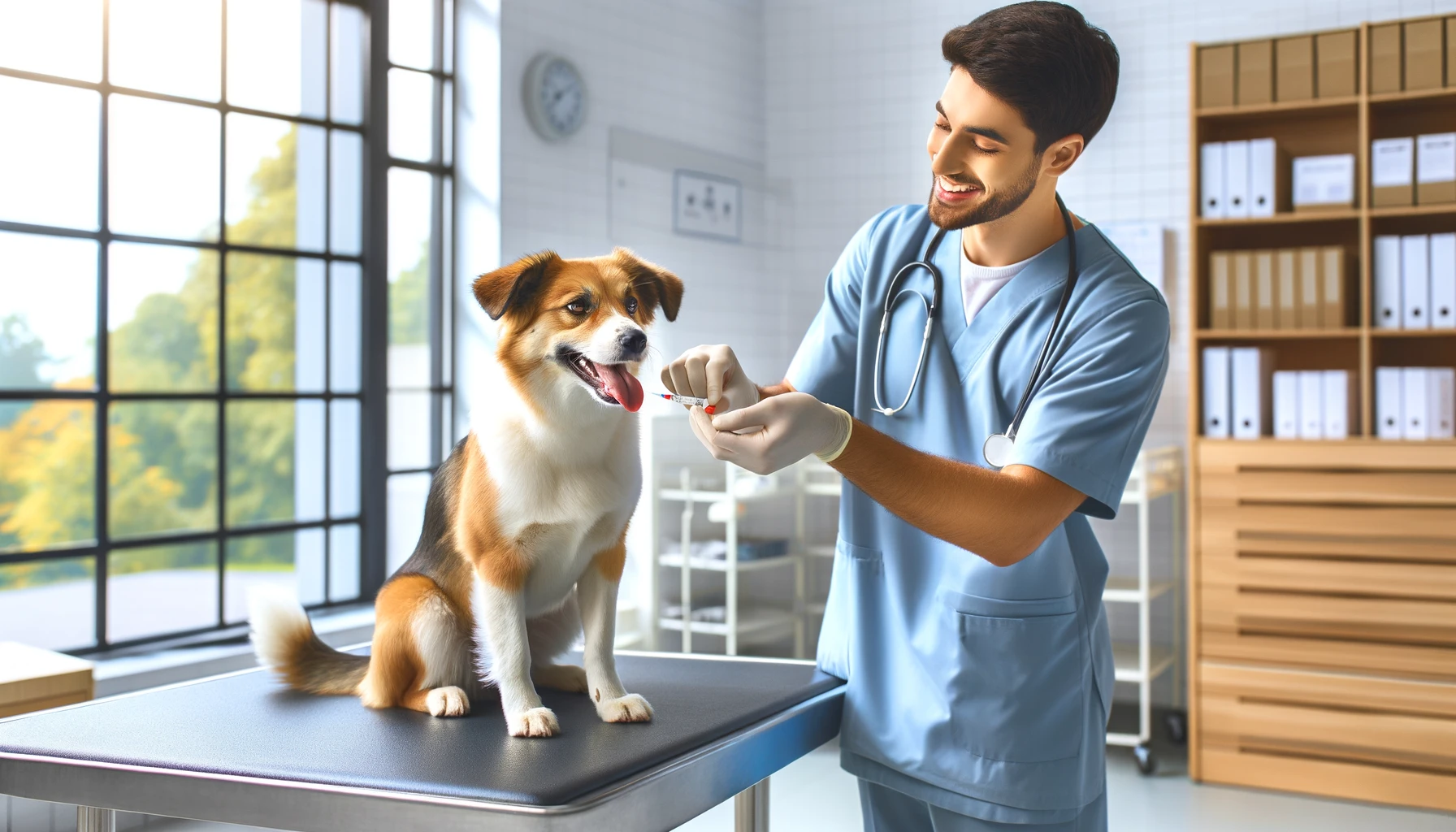You want your furry friend to be happy and healthy, right? Well, we've got you covered. Here are the 8 best ways to keep your dog in tip-top shape.
- Feed them a balanced diet
- Make sure they get regular exercise
- Don't forget those important vaccinations and preventive medications
- Don't neglect their dental care either
Regular vet check-ups, stress management, parasite control, and mental stimulation are also key.
Your dog will thank you for it!
Key Takeaways
- Provide a well-balanced diet with proper portion control, including proteins, carbohydrates, healthy fats, fruits, and vegetables.
- Regular exercise and mental stimulation are crucial for maintaining your dog's physical and mental health.
- Follow recommended vaccination schedules and administer preventive medications for protection against diseases and parasites.
- Regular vet check-ups and dental care are essential for monitoring your dog's overall health and preventing dental issues.
Balanced Diet
To maintain your dog's overall health and well-being, it's essential to provide them with a balanced diet. Meeting their nutritional needs through proper portion control is crucial for their optimal health. Dogs require a well-balanced diet that includes the right amount of proteins, carbohydrates, fats, vitamins, and minerals.
Proteins are essential for muscle development and repair. They provide energy and support a strong immune system. Good sources of protein for dogs include lean meats, fish, eggs, and legumes.
Carbohydrates, such as whole grains and vegetables, provide energy and fiber. They should make up a smaller portion of your dog's diet compared to proteins.
Fats are an important energy source for dogs and help maintain healthy skin and coat. However, it's important to choose healthy fats, such as those found in fish oil or coconut oil, to avoid weight gain and other health issues.
Vitamins and minerals are crucial for your dog's overall health. They support proper immune function, bone development, and organ health. A balanced diet should include a variety of fruits and vegetables to provide these essential nutrients.
In terms of portion control, it's important to feed your dog the right amount of food based on their age, size, and activity level. Overfeeding can lead to obesity and other health problems, while underfeeding can result in nutrient deficiencies. Consult with your veterinarian to determine the appropriate portion size for your dog.
Regular Exercise
Maintaining your dog's overall health and well-being includes incorporating regular exercise into their daily routine. Regular exercise is crucial for your dog's physical and mental health. Here are some key benefits of regular exercise:
- Improved Physical Health: Regular exercise helps prevent obesity and maintains a healthy weight for your dog. It strengthens their muscles, joints, and cardiovascular system, promoting overall fitness and reducing the risk of various health issues.
- Mental Stimulation: Exercise provides mental stimulation for your dog, preventing boredom and destructive behavior. It helps reduce anxiety and stress, promoting a calmer and happier state of mind.
- Importance of Socialization: Regular exercise allows your dog to interact and socialize with other dogs and humans. This socialization is essential for their emotional well-being and helps develop their social skills and confidence.
- Benefits of Off Leash Play: Allowing your dog to play off leash in a safe and secure area provides them with the freedom to run, explore, and engage in natural behaviors. Off leash play helps maintain a healthy weight, improves agility, and enhances their overall happiness.
Remember to consult with your veterinarian to determine the appropriate amount and type of exercise for your dog, considering their age, breed, and health condition. With regular exercise, you can ensure a healthier and happier life for your furry friend.
Vaccinations and Preventive Medications
Make sure to schedule regular vaccinations and administer preventive medications to keep your dog healthy. Vaccinations play a crucial role in protecting your furry friend from various diseases. It's essential to follow the recommended vaccine schedules provided by your veterinarian. Vaccines can help prevent serious illnesses such as rabies, distemper, parvovirus, and hepatitis. Puppies require a series of vaccinations to build up their immunity, while adult dogs need booster shots to maintain their protection. By keeping up with the vaccine schedules, you can ensure that your dog has a strong defense against harmful pathogens.
In addition to vaccinations, preventive treatments are also important for your dog's well-being. These treatments include preventive medications for fleas, ticks, heartworms, and intestinal parasites. Fleas and ticks can cause discomfort and transmit diseases to your dog, so it's crucial to use preventive treatments regularly. Heartworms are transmitted through mosquito bites and can be fatal if left untreated. Administering preventive medications can protect your dog from heartworm infestation. Intestinal parasites such as roundworms and hookworms can also harm your dog's health. Regular deworming and preventive treatments can help keep these parasites at bay.
Dental Care
Keeping your dog's teeth clean and healthy is crucial for their overall well-being. Just like humans, dogs can develop dental problems such as gum disease, tooth decay, and bad breath if their oral hygiene is neglected. Here are some important tips for maintaining your dog's dental health:
- Regular brushing: Just like humans, dogs need regular toothbrushing to remove plaque and prevent tartar buildup. Use a canine toothbrush and toothpaste specifically made for dogs. Start by introducing toothbrushing gradually and make it a positive experience for your dog.
- Dental chews and toys: Chewing on appropriate dental chews and toys can help remove plaque and tartar from your dog's teeth. Look for products that are specifically designed to promote dental health.
- Professional dental cleanings: Regular professional dental cleanings performed by a veterinarian are essential for maintaining your dog's oral health. These cleanings involve scaling and polishing your dog's teeth, which can't be done at home.
- Regular check-ups: Schedule regular check-ups with your veterinarian to monitor your dog's dental health. Your vet can identify any dental issues early on and provide appropriate treatment.
Regular Vet Check-ups
To keep your dog healthy, regular vet check-ups are crucial. These appointments allow your vet to administer important vaccinations that protect against diseases and illnesses.
Additionally, regular check-ups enable your vet to perform preventative care measures, such as parasite prevention and dental cleanings, to keep your dog in optimal health.
Importance of Vaccinations
Regular vet check-ups are essential for ensuring the health and well-being of your dog. Vaccinations play a crucial role in keeping your furry friend protected from various diseases. Here are some key points to consider regarding the importance of vaccinations:
- Vaccination Schedule: Following a proper vaccination schedule is important to ensure that your dog receives all the necessary vaccines at the right time. Your veterinarian will create a customized schedule based on your dog's age, breed, and lifestyle.
- Disease Prevention: Vaccines protect your dog from potentially deadly diseases such as rabies, distemper, parvovirus, and hepatitis. These diseases can be highly contagious and pose a significant risk to your dog's health.
- Herd Immunity: By vaccinating your dog, you contribute to the overall herd immunity, which helps protect the entire dog population from the spread of diseases.
- Vaccine Safety: Vaccines are rigorously tested for their safety and effectiveness. While rare, adverse reactions can occur. Your veterinarian will discuss any potential risks and benefits with you, ensuring your dog's safety.
Preventative Care Measures
Ensure the health and well-being of your dog by scheduling regular vet check-ups, which are essential for preventing potential health issues and maintaining their overall wellness. Regular check-ups allow the veterinarian to assess your dog's health, detect any underlying conditions, and provide necessary vaccinations.
During these visits, your vet can also offer guidance on balanced nutrition and recommend a suitable exercise routine for your furry friend. A balanced diet is crucial in maintaining your dog's health, as it provides the necessary nutrients for their growth and development. Additionally, regular exercise helps to keep your dog physically fit, mentally stimulated, and promotes a healthy weight.
Stress Management
Make sure you provide your dog with regular exercise to help manage their stress levels. Daily physical activity is essential for dogs to release pent-up energy and reduce stress. Aim for at least 30 minutes of active exercise, such as brisk walks or playing fetch, to keep your dog mentally and physically stimulated.
Here are some stress reduction techniques and relaxation exercises that can help keep your dog healthy:
- Massage: Just like humans, dogs can benefit from gentle massages. Massage helps reduce muscle tension, promotes relaxation, and improves circulation. Use slow, circular motions on your dog's neck, back, and legs to help them unwind.
- Mental stimulation: Engage your dog's mind with puzzle toys, treat-dispensing toys, or training sessions. Mental exercises can help alleviate stress and boredom, as well as provide a sense of accomplishment.
- Calming music or aromatherapy: Playing soothing music or using calming scents, such as lavender or chamomile, can create a calming environment for your dog. These techniques can help reduce anxiety and promote relaxation.
- Create a safe space: Provide your dog with a quiet and comfortable area where they can retreat when they feel stressed. This can be a crate, a designated corner, or a cozy bed. Make sure this space is always accessible and free from any disturbances.
Parasite Control
To keep your dog healthy, it's crucial to focus on parasite control.
Preventing flea infestations is essential as fleas can cause itching, skin irritation, and transmit diseases.
Regular deworming is also important to eliminate internal parasites that can harm your dog's health.
Preventing Flea Infestations
To prevent flea infestations and maintain your dog's health, regularly use a flea control product recommended by your veterinarian. These products are designed to kill fleas and prevent their return, ensuring your dog stays flea-free.
In addition to using flea control products, there are other preventive measures you can take:
- Natural remedies: Some natural remedies, such as essential oils or herbal sprays, may help repel fleas. However, it's important to consult with your veterinarian before using any natural remedies to ensure they're safe for your dog.
- Regular grooming: Professional grooming can help prevent flea infestations by keeping your dog's coat clean and free from dirt and debris. Grooming also allows you to regularly check for any signs of fleas or ticks on your dog's skin.
- Vacuuming and cleaning: Regularly vacuuming your home and washing your dog's bedding can help remove any fleas or eggs that may be present in your environment.
- Yard maintenance: Keeping your yard well-maintained, including regularly mowing the lawn and removing any debris, can help reduce the presence of fleas in your outdoor space.
Importance of Regular Deworming
Regular deworming is essential for maintaining your dog's health and preventing parasite infestations. Deworming medications are designed to eliminate internal parasites such as roundworms, hookworms, whipworms, and tapeworms. These parasites pose a significant threat to your dog's well-being as they can cause various health issues, including weight loss, diarrhea, vomiting, and anemia.
By regularly deworming your dog, you can't only prevent these problems but also protect your family from potential zoonotic infections. There are different types of deworming medications available, including oral tablets, chewable tablets, and spot-on treatments. Your veterinarian can recommend the most suitable option based on your dog's age, weight, and specific needs.
Mental Stimulation
When it comes to keeping your dog healthy, it's important to provide them with mental stimulation through activities such as interactive puzzles and training exercises. Canine enrichment and cognitive training play a crucial role in keeping your dog's mind sharp and preventing boredom. Here are four ways to provide mental stimulation for your furry friend:
- Interactive puzzles: Invest in puzzle toys that require your dog to solve a problem to get a treat. This engages their brain and keeps them entertained for hours.
- Training exercises: Teach your dog new tricks or reinforce obedience commands. This not only stimulates their mind but also strengthens the bond between you and your pet.
- Nose work: Engage your dog's sense of smell by hiding treats or toys around the house or in the yard. This taps into their natural instincts and provides a mental challenge.
- Food-dispensing toys: Use toys that dispense treats or kibble as your dog plays with them. This encourages problem-solving and keeps them mentally engaged while they enjoy a snack.
By incorporating these activities into your dog's routine, you can provide them with the mental stimulation they need to stay happy and healthy.
Frequently Asked Questions
How Often Should I Brush My Dog's Teeth to Maintain Good Dental Hygiene?
To maintain good dental hygiene for your dog, brush their teeth regularly. The frequency depends on their breed and oral health, but a general rule is to brush at least 2-3 times a week. Additionally, dental treats can help promote oral health.
Can I Use Natural Remedies or Home Remedies to Prevent Parasites in My Dog?
You can use natural remedies to prevent parasites in your dog. Regular exercise also has many benefits for dogs. Incorporating these methods into your dog's routine can help keep them healthy and parasite-free.
Are There Any Specific Toys or Activities That Can Provide Mental Stimulation for My Dog?
To provide mental stimulation for your dog, it's important to engage them with toys or activities. This helps keep their minds active and prevents boredom. Exercise is also vital for their overall well-being.
Is It Necessary to Give My Dog Preventive Medications if They Rarely Interact With Other Dogs?
It's still necessary to give your dog preventive medications, even if they rarely interact with other dogs. These medications protect against various diseases and parasites that can be transmitted through other means, like fleas or ticks.
How Can I Identify Signs of Stress or Anxiety in My Dog and What Can I Do to Help Them Manage It?
To identify signs of stress or anxiety in your dog, pay attention to behaviors like excessive barking, pacing, or aggression. To help them manage it, establish a routine, create a safe space, and consider using calming aids or seeking professional help.
Conclusion
To keep your dog healthy, it is important to take several steps:
- Make sure they have a balanced diet and get regular exercise.
- Stay on top of vaccinations and preventive medications.
- Don't forget about dental care.
- Regular vet check-ups are crucial for catching any potential issues early on.
- Help manage your dog's stress and make sure they are protected against parasites.
- Lastly, keep their minds active with mental stimulation.
By following these steps, you can ensure your furry friend stays in tip-top shape.






